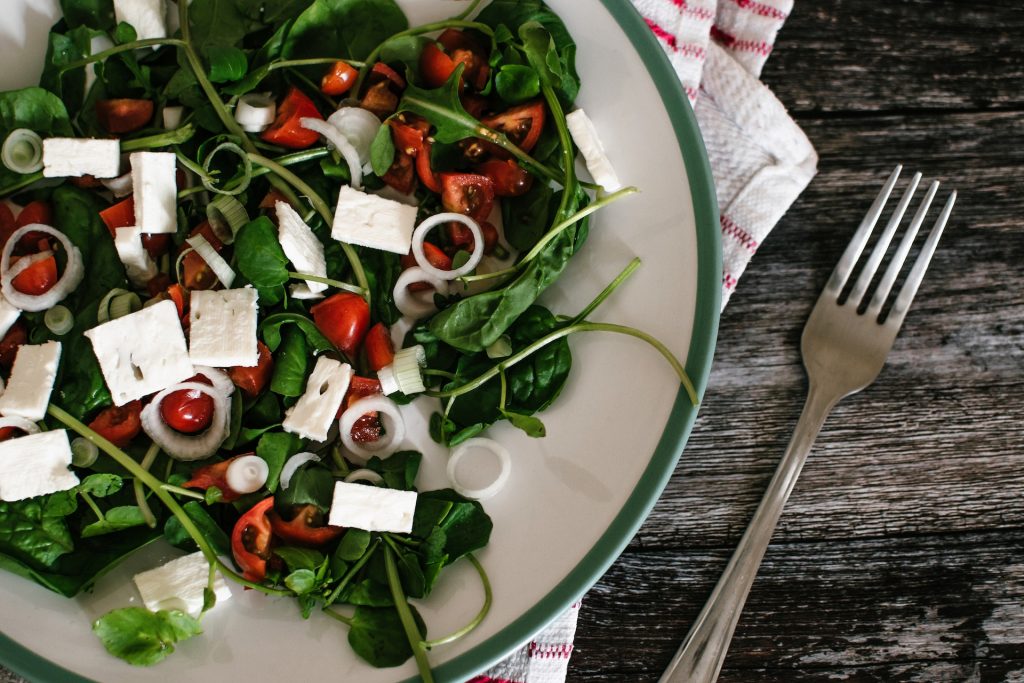Learn how clean eating can improve your skin conditions and discover the numerous benefits it offers.
Discover the Benefits of Clean Eating for Skin Conditions
Are you tired of dealing with stubborn skin conditions? It’s time to explore the fascinating world of clean eating! By understanding the concept of clean eating and its connection to skin health, you can unlock the secret to radiant and beautiful skin. In this article, we will delve into the basics of clean eating, debunk some common misconceptions, explore how diet affects your skin, and discover how clean eating can benefit specific skin conditions like acne, eczema, and psoriasis. But first, let’s start by understanding what clean eating really means.
Understanding the Concept of Clean Eating
Clean eating is not just a temporary diet; it’s a way of life that focuses on consuming whole foods in their most natural form. It’s about nourishing your body with nutrient-dense foods that are free from artificial additives, preservatives, and excessive sugar or salt. Embracing clean eating means making mindful choices about the food you put into your body, prioritizing fresh fruits and vegetables, lean proteins, whole grains, and healthy fats.
When it comes to clean eating, the benefits go beyond just weight loss. By fueling your body with wholesome foods, you provide it with the essential nutrients it needs to function optimally. Whole foods are packed with vitamins, minerals, and antioxidants that support your immune system, promote healthy digestion, and contribute to overall well-being.

The Basics of Clean Eating
The foundational principles of clean eating revolve around simplicity and quality. Instead of relying on processed and packaged foods, clean eaters opt for whole, unrefined ingredients. Fill your plate with vibrant colors, and aim to include a variety of fruits and vegetables to maximize your nutrient intake. Choose organic and locally sourced produce whenever possible to minimize exposure to harmful pesticides and support local farmers. Additionally, prioritize lean proteins like fish, poultry, beans, and lentils, and opt for whole grains like brown rice and quinoa over refined grains.
When it comes to clean eating, it’s not just about what you eat but also how you prepare your meals. Cooking at home allows you to have full control over the ingredients you use and the cooking methods employed. By preparing your meals from scratch, you can avoid hidden sugars, unhealthy fats, and excessive sodium commonly found in processed foods. Plus, cooking at home can be a fun and creative way to experiment with different flavors and cuisines.
Misconceptions About Clean Eating
Now, let’s bust some common misconceptions about clean eating. Clean eating does not mean deprivation or strict rules. It’s not about counting calories or avoiding all indulgences. Instead, it’s about finding a balance that works for you and prioritizing nourishing foods while still enjoying occasional treats. Remember, clean eating is a lifestyle, not a rigid diet. Don’t be afraid to experiment and find what nourishes both your body and soul.
Another misconception about clean eating is that it requires a hefty budget. While organic and locally sourced foods may come at a higher price point, there are still plenty of affordable options available. Shopping in-season fruits and vegetables, buying in bulk, and planning your meals ahead can help you save money while still eating clean. Additionally, growing your own herbs and vegetables in a small garden or even in pots on your balcony can be a cost-effective and rewarding way to incorporate fresh produce into your meals.
It’s important to note that clean eating is not a one-size-fits-all approach. Everyone’s nutritional needs and preferences are different, so it’s essential to listen to your body and make adjustments accordingly. Some people may thrive on a plant-based clean eating diet, while others may include lean meats or dairy products in moderation. The key is to find what works best for you and to approach clean eating as a sustainable and enjoyable lifestyle.
The Connection Between Diet and Skin Health
We’ve all heard the saying, “you are what you eat,” and when it comes to skin health, this rings especially true. The food we consume can directly impact the appearance and overall health of our skin. Let’s explore how diet affects your skin and why clean eating is a powerful tool to achieve that coveted healthy glow.
Did you know that the skin is the largest organ in the human body? It serves as a protective barrier against external factors such as UV radiation, pollution, and harmful bacteria. Maintaining the health of your skin is not just about using skincare products; it starts from within.
When you consume processed and sugary foods, it can lead to inflammation in the body, which can manifest on your skin through breakouts, redness, and irritation. These foods are often high in refined carbohydrates and lack essential nutrients that support skin health. On the other hand, consuming nutrient-rich foods like fruits, vegetables, and healthy fats helps promote skin health.
Antioxidant-rich foods, such as berries and leafy greens, help combat free radicals and protect your skin from oxidative damage. Free radicals are unstable molecules that can cause cellular damage and accelerate the aging process. By incorporating these colorful foods into your diet, you can provide your skin with a wide range of antioxidants that help maintain its youthful appearance.
Similarly, omega-3 fatty acids found in fish and nuts help nourish and strengthen the skin’s barrier, keeping it supple and hydrated. These essential fatty acids play a crucial role in maintaining the integrity of the skin’s cell membranes, allowing them to retain moisture and prevent dryness. Including sources of omega-3s in your diet, such as salmon, walnuts, and chia seeds, can contribute to a healthy and radiant complexion.
The Role of Nutrients in Skin Health
Several key nutrients play a vital role in maintaining healthy skin. Vitamin C, for example, promotes collagen production, providing elasticity and firmness to your skin. Collagen is a protein that gives your skin structure and helps it stay plump and wrinkle-free. Foods like citrus fruits, bell peppers, and broccoli are excellent sources of vitamin C, so make sure to include them in your daily meals.
Vitamin E acts as a potent antioxidant, protecting your skin from environmental stressors. It helps neutralize free radicals and prevents them from causing damage to your skin cells. Almonds, spinach, and avocados are rich in vitamin E, making them great additions to your diet for healthier skin.
Zinc, another essential nutrient for skin health, plays a crucial role in controlling acne breakouts and supporting wound healing. It helps regulate oil production, reduces inflammation, and promotes skin cell regeneration. Oysters and pumpkin seeds are excellent sources of zinc, so consider incorporating them into your meals to support your skin’s health.
In conclusion, the connection between diet and skin health is undeniable. By choosing nutrient-rich foods and avoiding processed and sugary options, you can nourish your skin from the inside out. Remember, a healthy diet is not only beneficial for your overall well-being but also for achieving that radiant and glowing complexion you’ve always desired.
Clean Eating and Specific Skin Conditions
Now that we understand the fundamentals of clean eating and its impact on skin health, let’s explore how clean eating can specifically benefit common skin conditions such as acne, eczema, and psoriasis.

Clean Eating for Acne
Acne can be distressing, but by adopting a clean eating lifestyle, you can help manage outbreaks. Avoiding sugary and processed foods can help reduce inflammation and sebum production, two key factors in acne development. Instead, focus on incorporating foods that are rich in vitamins A, C, and E, as well as zinc. These nutrients help support skin cell turnover and regulate oil production, leading to clearer skin. Additionally, drinking plenty of water and herbal teas can help flush out toxins that may contribute to acne.
Clean Eating for Eczema
Eczema, characterized by itchy and inflamed skin, can benefit from a clean eating approach. Avoiding common triggers like dairy, gluten, and processed foods can help alleviate symptoms and promote healing. Instead, prioritize foods that are rich in anti-inflammatory omega-3 fatty acids, such as salmon, walnuts, and chia seeds. Including probiotic-rich foods like yogurt or fermented vegetables can also support a healthy gut, which plays a crucial role in eczema management.
Clean Eating for Psoriasis
Psoriasis, a chronic autoimmune condition, can be managed with the help of clean eating. Eliminating potential triggers like alcohol, refined sugars, and nightshade vegetables may help reduce flare-ups. Incorporating nutrient-dense foods that support immune health, such as leafy greens, berries, and turmeric, can provide anti-inflammatory benefits. Additionally, ensuring an adequate intake of vitamin D, either through sunlight exposure or fortified foods, may help alleviate symptoms.
The Science Behind Clean Eating and Skin Health
Curious about the scientific evidence supporting the connection between clean eating and skin health? Let’s take a closer look at how processed foods can negatively impact your skin and why incorporating antioxidants and vitamins through a clean eating approach can bring about visible improvements.
The Impact of Processed Foods on Skin
Processed foods, often high in refined sugars, unhealthy fats, and artificial additives, can wreak havoc on your skin. Consuming excessive amounts of sugar can lead to glycation, a process that damages collagen and elastin, leading to premature aging and dull-looking skin. Additionally, the excessive intake of unhealthy fats found in fried foods and processed snacks can disrupt the skin’s barrier function, leaving it prone to dryness and inflammation. By minimizing processed foods and focusing on whole, nutrient-dense options, you can help reverse these damaging effects.
The Benefits of Antioxidants and Vitamins for Skin
Antioxidants and vitamins are superheroes for your skin! Antioxidants help neutralize free radicals, which are unstable molecules that can lead to cellular damage and premature aging. Vitamins like A, C, and E, found abundantly in fruits and vegetables, offer protection against oxidative stress and improve overall skin health. Incorporating a variety of colorful produce into your clean eating regimen ensures an ample supply of these skin-loving nutrients.
Implementing a Clean Eating Lifestyle
Ready to embark on your clean eating journey? Implementing a clean eating lifestyle doesn’t have to be overwhelming. It’s all about taking small steps and finding what works best for you.
Transitioning to a Clean Diet
Start by gradually eliminating processed foods from your diet and replacing them with whole, unprocessed alternatives. Experiment with new fruits, vegetables, and whole grains to add excitement and diversity to your meals. Don’t be afraid to seek inspiration from cookbooks, online recipes, or even try your hand at growing your own herbs and vegetables.
Overcoming Challenges in Clean Eating
While clean eating can offer remarkable benefits, it’s essential to acknowledge that perfection is not the goal. There will be times when you may indulge in less-than-ideal foods or face challenges when dining out or socializing. Remember, clean eating is a journey, and it’s normal to make occasional detours. Embrace a flexible mindset and focus on incorporating nourishing foods into your everyday routine rather than striving for perfection.
As you delve into the world of clean eating, keep in mind that the benefits go beyond achieving vibrant skin; you’ll likely notice improvements in energy levels, digestion, and overall well-being. Embrace the power of clean eating and discover how it can transform your skin and your life. Say goodbye to troublesome skin conditions and hello to a newfound radiance that stems from within!







